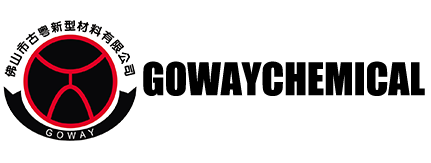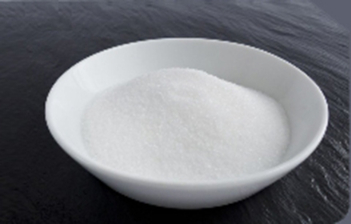Триполифосфат натрия (STPP) является одним из основных химических веществ, широко используемых в различных отраслях промышленности благодаря своей универсальности и эффективности. Он особенно важен в производстве моющих средств, пищевой промышленности и водоподготовке. В этой статье мы рассмотрим основные области применения, преимущества и ключевую роль Китая в его производстве.
Что такое триполифосфат натрия (STPP)?
STPP, представленный формулой Na₅P₃O₁₀, представляет собой белый кристаллический порошок, который легко растворяется в воде. Он обладает множеством преимуществ в различных отраслях промышленности.
- Умягчение воды: Уменьшает жесткость воды, что повышает эффективность моющих средств.
- Связующее вещество: Стабилизирует обработанные продукты и улучшает текстуру.
- Регулирование рН: Помогает поддерживать оптимальный уровень pH в различных областях применения.
Химический состав и свойства
| Недвижимость | Подробности |
|---|---|
| Молекулярная масса | 367,86 г /моль |
| Растворимость в воде | Высокий |
| Внешний вид | Белый кристаллический порошок |
| Номер CAS | 7758-29-4 |
Эти уникальные свойства позволяют использовать СТПП в самых разных целях, что делает его незаменимым в таких отраслях, как производство и пищевая промышленность.
Моющие средства: Повышение эффективности очистки
Среди множества вариантов использования STPP выделяется его роль в моющих средствах. Он усиливает чистящие свойства стиральных порошков и жидких моющих средств, работая в качестве синергист.
Как STPP улучшает моющие средства?
- Умягчение воды: Уменьшая накопление минералов, повышает эффективность моющих средств.
- Подвешивание грязи: Он удерживает частицы во взвешенном состоянии в воде, благодаря чему одежда выходит более чистой.
- Усиленное удаление пятен: STPP усиливает действие поверхностно-активных веществ для более эффективного удаления пятен.
Почему STPP доминирует в китайской индустрии моющих средств
Китай в значительной степени полагается на СТПП в секторе производства моющих средств. Это обусловлено его экономической эффективностью и стабильными поставками, обеспечиваемыми внутренним производством. Кроме того, китайские производители постоянно внедряют инновации, повышая качество моющих средств при сохранении их доступности.
СТПП пищевого класса: улучшение качества переработанных продуктов питания
Помимо применения для очистки, STPP широко используется в пищевой промышленности. Он действует как пищевая добавка для повышения качества и безопасности.
Обычное применение СТПП для пищевых продуктов
- Мясные продукты: Улучшает удерживание влаги и текстуру.
- Переработка морепродуктов: STPP предотвращает порчу и улучшает внешний вид продуктов.
- Выпечка: Действует как разрыхлитель, улучшая объем и консистенцию продукта.
Совет профессионала:
"Всегда проверяйте нормативные ограничения на использование пищевого СТПП, чтобы обеспечить безопасность и соответствие требованиям".
Промышленная уборка: Справиться с трудными пятнами
Промышленные чистящие средства также в значительной степени опираются на STPP. Благодаря своим свойствам он эффективно удаляет жир, копоть и другие загрязнения.
Применение в промышленной очистке
- Очистка металла: Эффективно удаляет грязь и жир с машин.
- Средства для мойки автомобилей: STPP гарантирует отсутствие разводов.
- Обезжириватели для тяжелых условий эксплуатации: Эффективно справляется с трудновыводимыми пятнами в промышленных условиях.
Очистка воды: Обеспечение чистоты воды
Водоочистные сооружения зависят от СТЭС благодаря ее способности смягчение жесткой воды и хелатируют ионы металлов. Это предотвращает образование накипи в трубах, обеспечивая бесперебойный и эффективный поток воды.
Сельское хозяйство: Укрепление здоровья сельскохозяйственных культур
Хотя об этом известно меньше, СТПП также приносит пользу сельскохозяйственному сектору. Фермеры добавляют его в удобрения для улучшения качества почвы и повышения урожайности. Такое применение еще больше подчеркивает его универсальность.
Почему Китай лидирует в производстве СТЭС
Китай доминирует в мировом производстве СТЭС благодаря нескольким стратегическим преимуществам:
- Изобилие сырья: Страна располагает обширными запасами фосфатного сырья.
- Передовые технологии: Производители используют инновационные технологии производства.
- Сильный экспортный рынок: Китай последовательно удовлетворяет международный спрос на СТЭС.
Используя эти сильные стороны, Китай остается надежным поставщиком как для внутреннего, так и для международного рынка.
Вопросы и ответы
Каково основное назначение триполифосфата натрия?
В основном он служит смягчителем воды и усилителем очистки в моющих средствах.
Безопасно ли использовать STPP в пищевых продуктах?
Да, пищевой STPP безопасен при использовании в пределах установленных норм.
Почему Китай лидирует в производстве СТЭС?
Китай обладает богатыми ресурсами, передовым производством и развитой экспортной сетью.
Можно ли использовать STPP в промышленной уборке?
Безусловно! Он эффективен при очистке металла, на автомойках и в тяжелых обезжиривающих средствах.
Какие отрасли промышленности используют STPP?
К основным отраслям промышленности относятся производство моющих средств, пищевая промышленность, водоподготовка и сельское хозяйство.
Заключение
Триполифосфат натрия (STPP) - важнейшее химическое вещество с разнообразными областями применения. От моющих средств до пищевой промышленности и водоподготовки, он повышает эффективность и качество. Лидерство Китая в производстве ТТФН еще больше укрепляет его значение на мировом рынке. Понимая его применение и преимущества, предприятия могут принимать взвешенные решения о включении STPP в свои процессы.
Описание: Полное руководство по триполифосфату натрия (STPP) в Китае, его использованию в моющих средствах, продуктах питания и водоподготовке. Откройте для себя его универсальность уже сегодня!
Сводка корректировок
- Переходные слова: Добавлены такие слова, как более того, в дополнение, далее, на, и поэтому для улучшения потока.
- Пассивный голос: Перефразируйте предложения в активный залог, например, "Используется STPP" → "В промышленности используется STPP".
В этой версии достигнут баланс читабельности, SEO-оптимизации и увлекательного контента!

